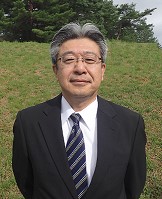
ICHIHASHI Masaru (Ph.D.)
Professor and Dean
Graduate School for International Development and Cooperation, Hiroshima University
The Graduate School for International Development and Cooperation (IDEC), Hiroshima University was established in April 1994. The School has a mission to nurture talented individuals who can resolve various types of problems in developing countries. The fundamental basis is The Five Principle of Hiroshima University. Since its establishment in 1994 IDEC has become a center of excellence in international cooperation studies, which rests on three pillars: international peace cooperation; international environmental cooperation; and international educational cooperation. As a result, IDEC has attracted many researchers and students from around the world.
In addition to the regular education curricula, IDEC has been providing its own special educational programs, as follows:
- The 5- year university-wide Ph.D. program named the TAOYAKA PROGRAM. The aim of the program is to create a flexible, enduring, peaceful society. Since FY 2013, IDEC has been in the Organization of Program for Leading Graduate Schools (operated with other graduate schools such as letters and engineering);
- The International Degree Program (Double Master’s Degree) in collaboration with the LBJ School of Public Affairs at the University of Texas at Austin (since FY 2011);
- HiPEC (Hiroshima University Partnership Project for Peacebuilding and Capacity Development) with MEXT Distinctive University Education/Research Assistance Programs (from FY2005 to FY2012);
- A MEXT-supported 21st century Center of Excellence program, which was succeeded by the JST Global Environmental Leader Education Program for Designing a Low Carbon Society (since FY2003);
- The field-oriented Special Education Program in Zambia, in collaboration with a JICA-JOCV project (since FY 2002).
In addition, since FY2006 IDEC has been involved in the Special Program for Priority Placement of MEXT Scholarship Students.
As a result, 1,968 students with master’s degrees, and 388 students with Ph.D. degrees have graduated from IDEC since its establishment and are currently actively involved in work inside or outside the country. As of May 2019, 267 students (of whom approximately more than 70% are international students) are studying at IDEC from a total of 37 countries.
As the above account suggests, IDEC has achieved various distinguished outcomes as a Japanese graduate school for development. However, a renewal has taken place and IDEC has become a university-wide organization called the IDEC Institute. This change aims to create a larger scale organization, involving education, research and practical resolution, which is operated across four HU graduate schools reorganized in FY 2020, beyond the previous departments.
There are strong expectations that graduate schools for development, which train highly specialized individuals and make it possible to play an active role around the world, will play an increasingly important role in the future. Thus, the upgrading of IDEC has become necessary to move forward with many activities. Examples include a new goal adopted in the United Nations as “Sustainable Development Goals” towards the year 2030; the international development of society as a renewed science and technology policy for Japan (Society 5.0); and a plan for a Sustainable University Town, in collaboration with Higashi Hiroshima City.
The development of globalization is causing international society to become increasingly complex. As a result, IDEC will initiate and organize programs from henceforward that will fully match this tendency.

 Home
Home